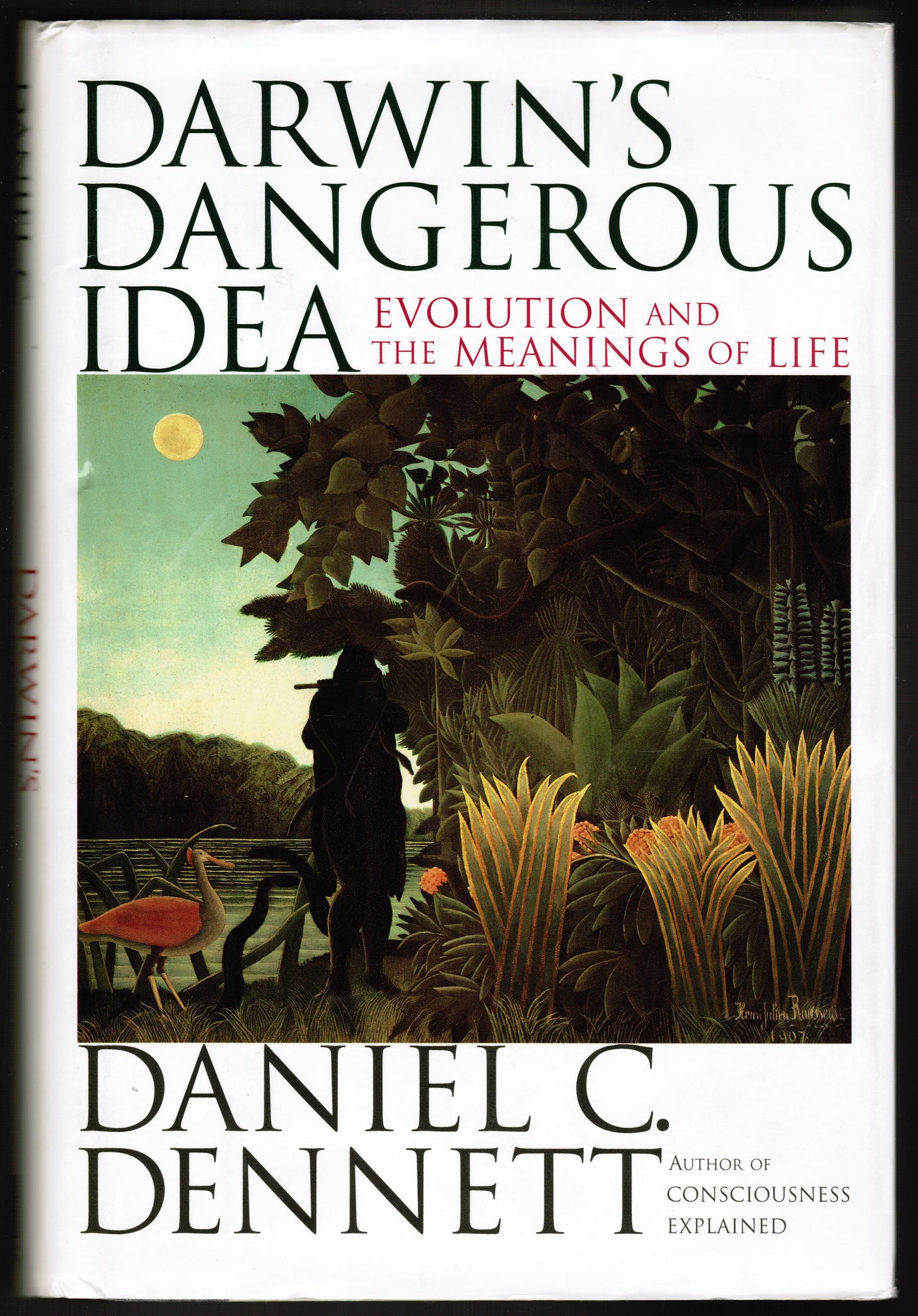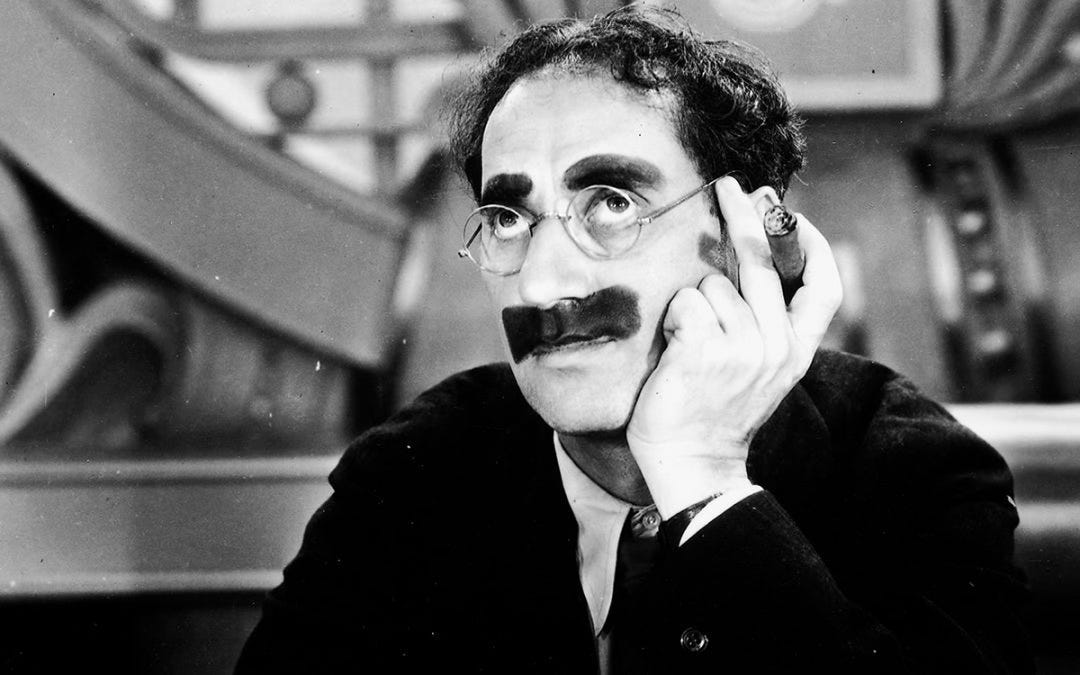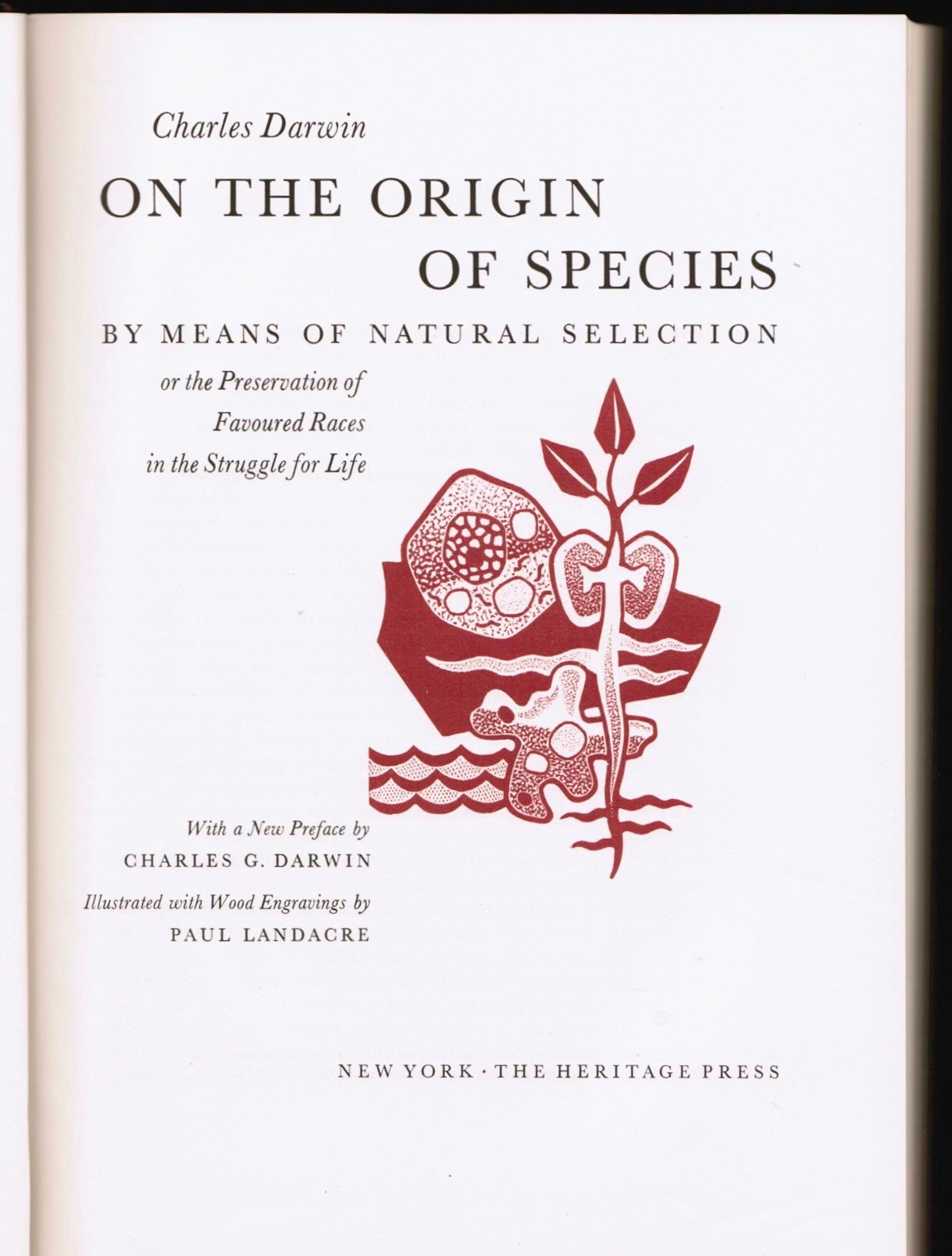Brilliant (incisive and witty) essay from Keith Parsons. Enjoy—
In Praise of Darwinism
Keith Parsons
There are two scientists whose names everybody recognizes, Albert Einstein and Charles Darwin. Einstein revolutionized physics; Darwin revolutionized everything. After Darwin, the old dichotomy between "humans" and "brutes" is dissolved. I and my cat had a common ancestor. We are of the same stock, and we are both children of Earth and time. After our lineages split, her kind evolved into the mighty lions, tigers, and panthers, as well as the fierce, solitary little hunters we know and love, and who deign to love us back. Our kind evolved into users of fire, tillers of the soil, language users, inventers of science, politics, and religion, builders upon the Earth and despoilers of it.
During the recent Olympics, I thought of my cats as watching with droll amusement. In proportion to their size, they can run faster, jump higher, and pound-for-pound are far stronger than any human. A human-sized cat, like a leopard or jaguar, can kill any human being in seconds. If we could jump like a cat, we could stand in our front yard and jump onto our roof. Their senses are much more acute. Black night for us is no darker than twilight for them. They hear frequencies that are inaudible to us. How then can we keep as pets beings superior to us in so many ways? Because we have been granted intellect—and opposable thumbs—by cosmic accident.
Esteemed philosopher Daniel Dennett died just this year. One of his many books was Darwin's Dangerous Idea (1995). Dennett called Darwinism "universal acid," that is, it can eat into every dogma and ideology, and not just religious fundamentalism. Darwinism can be just as threatening to a Harvard professor as to a fundamentalist preacher. Any doctrine that ignores or downplays our animal origins is doomed to error and irrelevance. Many intellectuals pay lip service to Darwinism while quailing at its implications, fearful that they might militate against political or religious imperatives, or empty life of meaning.
How has Darwinism affected my field, philosophy? René Descartes, reflecting a tradition that goes back through Plato to the ancient Pythagoreans, taught that a human being is an incorporeal consciousness temporarily attached to a physical body. A ghost in a machine. Darwin disposed of that idea forever. We think with our brains, and brains are products of evolution.
Darwin said that the baboon, properly understood, would do more for metaphysics than Locke. He was right. In Duck Soup, Groucho spoke these immortal lines:
Why don't you suggest something? In fact, you do suggest something. To me you suggest a baboon. I'm sorry. That isn't fair to the baboons.
But kinship to apes and monkeys is not something to be despised. On the contrary, the more we learn about them, the more we can know about ourselves.
While only a few philosophers, mostly ones with religious motivations, remain full-fledged Cartesian dualists, even those not explicitly dualist still talk as though they are. They still have not come to terms with the fully embodied nature of the human mind and consciousness. Some cannot shake the feeling that there has to be more to consciousness than brain function, so they come up with ingenious "intuition pumps" (a phrase we owe to Dennett) to try to pump up our intuitions against that conclusion. The most famous intuition pump was due to Leibniz. He asked us to imagine the brain enlarged to the size of a factory so that we could tour it. We would see all sorts of interesting neural machines doing all sorts of complex work, but we would never see a thought or a feeling. Therefore, thinking and feeling must be something more than the physical functioning of the brain.
A more recent intuition pump depicts Mary, the world's greatest neuroscientist. She knows everything about the anatomy and physiology of how the visual cortex of the brain processes the incoming signals from the optic nerve. She knows it right down to the molecular level. However, Mary is totally color blind. To her the world looks like it did to me on our old Motorola B & W set. When I watched The Wizard of Oz on that set, I did not get the scene where Dorothy and Toto step out of the sepia of Kansas into the technicolor of Munchkinland, and she says, "Toto, I don't think we are in Kansas anymore." If Mary could be given color vision, would she not have an experience like Dorothy's, stepping from shades of gray into brilliant color? If so, doesn't this mean that there are aspects of conscious experience that even Mary, who knows the physical processes in full detail, will not understand until she has the experience? In this case, does this not show that the first-person experiences of consciousness cannot be fully captured by the third-person accounts of science?
Finally, consider zombies. No, not the brain-munching staples of the horror genre. This zombie is just like you down to the last molecule. Zombie-you says and does the same things you do, but Zombie-you is a blank inside, having no feelings, emotions, thoughts, or any conscious experience at all. Zombie-you is an automaton; it acts exactly like you but has none of your inner experiences. Now if such zombies are possible—and why not? --doesn't this show that our consciousness is more than just the physical processes of the brain? Neuroscientists might someday solve the "easy problem" of understanding brain processes entirely, but the "hard problem" why such processes should go with conscious experience will perhaps forever elude them.
How would a Darwinian address these examples? By asking a typical Darwinian question: How and when did conscious experience begin? Consciousness is usually held to evince two distinctive properties, qualia and intentionality. Qualia are the experienced properties of things, the redness of the fire engine, the taste of orange juice, the sound of the impossible notes hit by Mozart's Queen of the Night. Intentionality is the "aboutness" of our thoughts. Thinking always has an object. Even the idlest daydream is about something real or imaginary or even impossible.
Even the humblest creatures can act as if they had consciousness. An amoeba will avoid a drop of acid but will move towards and engulf a food particle. Inveterate anthropomorphizers that we are, we might imagine the amoeba going "ouch" when encountering the acid and "yummy" when ingesting the particle. Of course, an amoeba is far too simple an organism to experience such sensations, and the reactions of avoidance or approach are purely automatic, like the opening and closing of an automatic door.
At some point, then, in the evolution from protists to people automatic responses evolved into conscious experience, complete with qualia and intentionality. "As if" gave way to the real thing. Exactly where? Did the Edmontosaurus feel fear at the approach of Tyrannosaurus, or was its flight behavior purely an automatic response to stimuli? Wherever we drive the golden spike to demarcate automata from sentient subjects, did something magical or supernatural happen at that point? They now tell us that fish feel pain (just after I have ordered my 18-pack of kipper snacks). Do fish have souls? Is there a piscine heaven? If we reject ensoulment as an explanation of the origin of feelings, what kind of account can we give?
Dennett says that Darwinism explains in terms of "cranes" rather than "skyhooks." A crane builds piece by piece from the ground up by lifting things up while itself being firmly positioned on the ground. A skyhook is an imaginary device for fixing an immovable point in the sky. Lifting could then be done by cables draped from the skyhook. Evolution explains in terms of cranes. Even the most magnificent organic structures (like the brain of Homo sapiens sapiens) were built up piece by piece from less complex structures by the trial-and-error process of natural selection. We can see the development in the fossil record. Australopithecus had a brain of 450 cubic centimeters; Homo habilis had 600 cm3, Homo erectus had 950 cm3, our brain is 1300 cm3 (Let's not get too cocky. The Neanderthals had even bigger brains.).
Dennett says, and I agree, that those who want consciousness to be more than brain functioning are yearning for a skyhook, a deus ex machina to save our specialness. Even modern sophisticates and intellectuals cannot help feeling like the wife of the Anglican bishop who addressed her husband in horrified tones when she heard of Darwinism: "Oh! My dear! Descended from apes! Let us hope it is not true, and, if true, that it does not become well known!" Or like that more eminent Victorian Benjamin Disraeli who noted that the question of the day was "Is man an ape or an angel?" and sententiously declared himself to be firmly "on the side of the angels." I personally would say that if humans are angels, they are fallen angels, and I would prefer to be an enhanced ape.
But what about Mary, the colorblind neuroscientist? What this example shows is that there is a difference between understanding how we have an experience and having the experience. To take a disturbing example, I have never experienced (and firmly intend never to experience) the feelings associated with smoking crack cocaine. However, we understand quite well what crack does to the human brain. What does the crack user know that the neuroscientist does not know? He knows what it feels like. However, what the crack user is feeling can be completely explicated in terms of neurotransmitters, etc.
If then, first-person experience can be fully realized in brain functions, such experience does not show that there is anything lacking or inadequate about the scientific accounts. What it shows is that it is one thing to know what an experience is (brain process) and something else to have the experience. That is what "first-person" experience means. To know what something feels like is indeed to know something more and different from knowing how I feel it, but this difference points to no insufficiency in my scientific understanding. I imagine that Mary, if given color vision, would say, "Wow! So, this is what it is like when the stimulated visual cortex is fully operational in the ways I have thoroughly explained."
What about zombies? It is easy to imagine things that are physically impossible. I can imagine flying by flapping my arms, but it cannot be done. Likewise, just because we can imagine an exact simulacrum of you that, unlike you, has no inner life or experience, this does not mean it is any more possible than flying by flapping your arms. On the contrary, if we could construct an organism exactly like you, we have every reason to think that it would have thoughts and feelings like you. Everything we know about neuroscience indicates that brain function is both necessary and sufficient for consciousness. The great books by Oliver Sacks make this absolutely plain. His cases, some of them beautiful and inspiring and others terrifying, make it absolutely clear that what you are and who you are comes down to the functioning of your brain.
Well, what about Darwinism and religion? That has always been the big-ticket item. Does Darwinism rule out religious belief? Dennett and Richard Dawkins say that it does. Michael Ruse, eminent philosopher of biology, says no. Interestingly, the religious response to Darwin at the time of the publication of On the Origin of Species (1859) was decidedly mixed.
Some more progressive theologians found it congenial, or at least tolerable. The more conservative Christians, of course, were horrified. Not only did Darwin's theory imply that the Genesis account cannot be true, it also seemed to remove God's agency from nature. For natural theologians like William Paley, it had always been the marvelous adaptations of living things that supremely bespeak the creative hand of providence. Children would sing how "all things bright and beautiful" were made by God (But check the Monty Python version, "All things dull and ugly.").
Then along comes Darwin and says that it was all a mechanical process of sorting among natural variations. Dennett calls natural selection an algorithm, an automatic process of variation and selection operating again and again and again over geological time preserving a few forms and ruthlessly destroying many. Such a brutal, unthinking process seems to be completely at odds with the supposedly beneficent nature of the creator. If God did not create in six days, thus sparing creatures the endless ages of nature red in tooth and claw, then why not? Creationists have their facts all wrong, but at least they realize what God should have done.
My view is that Darwinism, along with many other scientific developments, and along with the higher critical study of the Bible, have so decisively refuted fundamentalism that it is now just ridiculous. I have heard that the "creation museum" in Kentucky has a life-size model of Triceratops outfitted with a saddle so that Adam and Eve could ride it around the Garden of Eden. I am glad they had a saddle. Riding a dinosaur bareback on your bare butt would really chafe.
I normally do not go in for ridicule of religious beliefs. I really hated the scene in Bill Maher's Religulous where he made fun of the truck stop chapel. The burly truckers must have been true Christians because they let him leave with all his teeth still in his mouth. However, with Christian Nationalist fundamentalists doing their worst to turn the United States into Gilead, they should be ridiculed and lampooned as savagely as it can be dished out.
Many Christians, however, have made their peace with Darwinism. Don't ask me exactly how. Some years ago, Pope John Paul II announced that evolution is a true account of the origin of the human body—though the human soul is still God's creation. Darwin's contemporary, Asa Gray, was a distinguished botanist on the Harvard faculty. He accepted Darwin's theory and wrote a three-part summary of it for Harper's magazine. Darwin was so impressed that he arranged for it to be published in book form, and he and Gray enjoyed a cordial relationship.
However, Gray, a devout Calvinist, still could not accept the full implications of Darwinism. As he saw it, the course of evolution must be shaped by God's causing certain variations to arise in populations at the right time. Thus, one pre-human would be made distinctly smarter than others, and so would survive to initiate the line to us. So, a providential variation arising here and there could guide evolution in God's ways. One wag referred to this scheme as "creation on the installment plan." Darwin was more polite but was firm in saying that in his extensive study of variation, he could detect no plan or purpose but only randomness. Of course, one could say that what looks random to us is really part of God's design. However, as Darwin sagely observed, to say that a process is designed when it looks no different from undesigned, is to speak vacuously.
So, I will not state categorically that Darwinism is incompatible with religious belief. I will say that it fits quite comfortably with my position of atheistic naturalism. I expect no evidence of providence in the process of evolution, and I find none. The human race is just one of innumerable other possibilities that could have been. Had that asteroid not ended the Cretaceous, and the 150-million-year reign of the dinosaurs, we would almost certainly not be here. Something equally interesting and awful might be here instead, but it would not be us. Though our kitties love us, it would have been far better for other creatures if we had not been. The World Wildlife Federation reports that just since 1970 (!!!) the world wildlife population has decreased by 69%. By 2050 there will be 10 billion human beings.
Will there still be tigers or tiger sharks?
Note: Anyone may copy and publish what I or my guests write, provided proper credit is given, that it’s not done for commercial purposes, that I am notified of the copying (you can just leave a comment saying where the copy is being published), and provided that what we write is not quoted out of context or distorted.
Thanks again for reading Letters … . Subscribe for free (always) to receive new posts and support my work.




